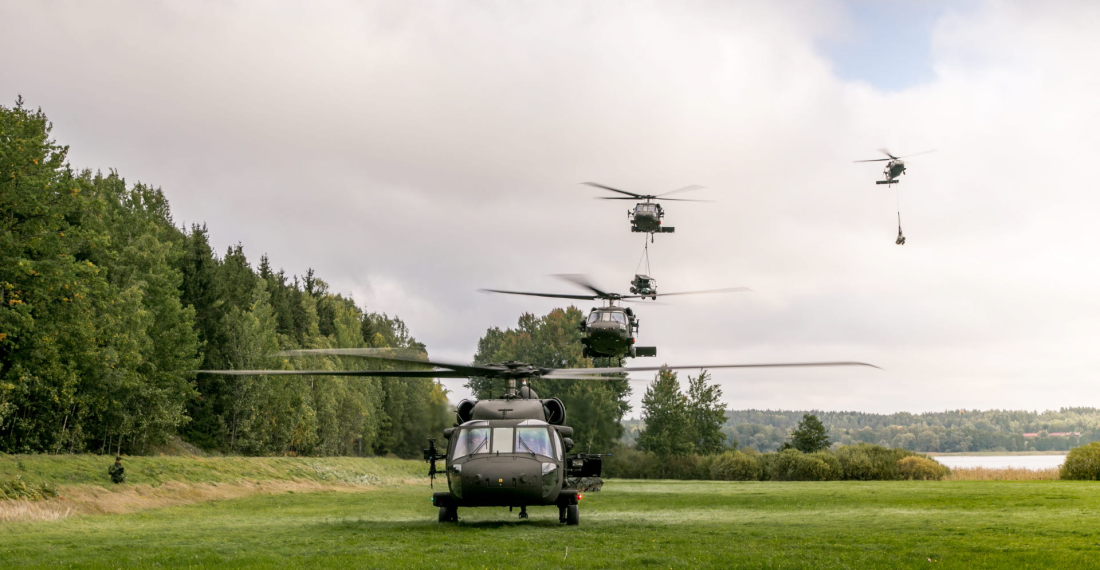Sweden has commenced its largest military exercise in 25 years, involving some 26,000 soldiers from 14 different countries.
The Aurora 23 exercises kicked off yesterday, on Monday (17 April) and will run until 11 May. Other than Sweden, participating nations are the US, UK, Poland, Norway, Estonia, Latvia, Lithuania, Denmark, Austria, Germany, France, Finland, who joined NATO on 4 April this year, and Ukraine.
In a statement released two weeks ago, the Swedish Armed Forces said that the purpose of Aurora 23 is "to enhance the collected capability to counter an armed attack on Sweden", with drills taking place "in the air, on the ground and at sea".
The exercise will focus mostly on southern Sweden and the strategically important island of Gotland in the south-east, which lies in the middle of the Baltic Sea and approximately 350km north of the Russian exclave of Kaliningrad.
Drills will also be taking place in northern Sweden, the country's Armed Forces added.
Sweden's NATO application remains stalled
The biggest military exercises held in Sweden in 25 years come amid the country's stalled NATO membership application. Stockholm, along with Helsinki, applied for NATO membership in May after being rattled by Russia's full scale invasion of Ukraine in February.
While Finland joined earlier this month, Sweden's bid is still being held up by Hungarian and Turkish objections.
source: commonspace.eu with agencies
photo: Försvarsmakten






